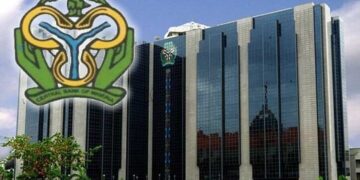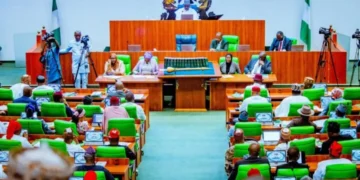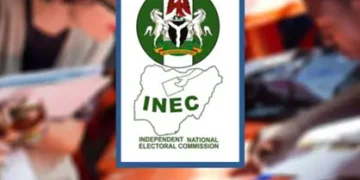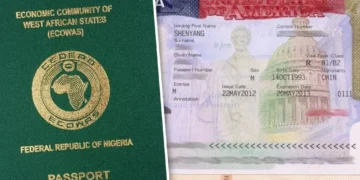The governor of the Central Bank of Nigeria (CBN) Olayemi Cardoso has called for regulations to strengthen anti-money laundering and cybersecurity crimes within the West African Monetary Zone (WAMZ).
At the 10th College of Supervisors for Non-Bank Financial Institutions (NBFIs) of WAMZ in the nation’s capital, Abuja yesterday, Cardoso said “I implore you not to rest on your oars. There is still a lot to be done. We must continue to push forward the agenda of strengthening the anti-money laundering practices; deepening supervisory capacity on cybersecurity and fintech regulation; and the implementation of the risk-based supervisory approach.”
Also speaking at the event, the director general of the West African Monetary Institute (WAMI), Olorunsola Olowofeso urged member states to develop an adequate national cybersecurity strategy and appropriate regulatory and supervisory frameworks to strengthen the resilience of the financial sector.
In addition to his recommendations, the CBN governor reemphasized the importance of monitoring trends, risks and innovations of NBFIs or Other Financial Institutions (OFIs) as their increasing transaction volumes pose major financial system stability risk.
He said the NBFIs/OFIs sector is an important component of the financial ecosystem and a key part of the strategy for the West African Monetary Zone. He said Each meeting of the CSNBFI therefore, presents a unique opportunity to move forward in our journey towards regional integration and shared economic prosperity in the context of ensuring both financial stability and the specialised financial intermediation the institutions are licensed to perform.
Fintech loans are one of the most commonly reported innovations. Industry players say that while that may appear small in relation to the size of credit by deposit money banks (DMBs), some jurisdictions globally, have noted a growing trend in the volume of these loans. In many cases, fintech credit is provided via electronic platforms that connect lenders to borrowers – in which case the platform takes the role of a financial auxiliary.
In many jurisdictions, the digital firms have a banking licence and are subject to prudential requirements or they may just be regulated as Fintech payment service firms. Innovations linked to crypto or stablecoin assets were also reported by some jurisdictions.
Outgoing chairman of the college Yaw Sapong commended the CBN and the Bank of Ghana for their regulatory and supervisory reforms of the NBFI sectors despite challenging economic conditions. He expressed gladness that “the Central Bank of Nigeria has complied with the minimum standards of the Model Acts, with others making progress towards their adoption”.
Sapong said the role of nonbank financial institutions in our subregion cannot be overstated. They provide essential financial services to underserved segments of our populations, including small and medium-sized enterprises (SMEs). “This fosters economic growth and financial inclusion, thereby contributing significantly to the overall development of our economies.
Emerging risks to the financial system include climate-related risks, internet disruption, cyber and social media threats arising from the digitization of financial services.
The meeting was organised to review developments in the non-bank financial institutions sub-sector within the zone for the second half of 2023 and the first quarter of 2024, assess the regulatory and supervisory challenges of Member States, and share experiences to mitigate emerging risks to the financial system of the WAMZ.
The DG, WAMZ enjoined the participants to focus on identifying, assessing, and monitoring emerging risks, vulnerabilities, and early warning signals in the NBFI sector of the member states and provide relevant recommendations to the committee of governors of the WAMZ.
As he reiterated the need to strengthen the resilience of the NBFIs sector to ensure a more stable provision of financing and reliable payments services.














































































